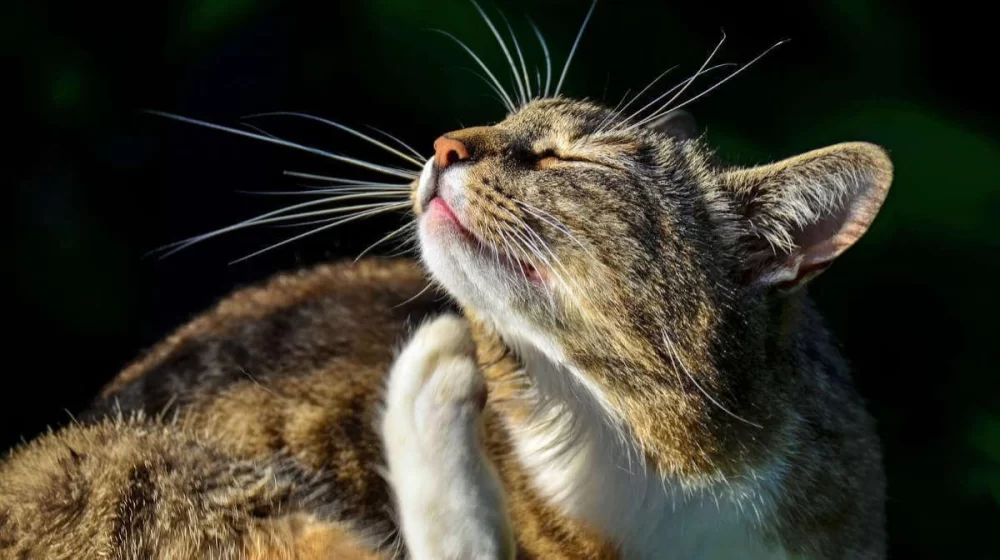The Cost of Cat Flea Treatment: Understanding the Financial Impact
When I first noticed my cat, Whiskers, scratching incessantly, I knew something was wrong. After a quick inspection, I discovered tiny black specks running through his fur—flea dirt! It didn’t take long for me to realize that my cat had picked up a flea infestation. As I scrambled to find the best treatment options, the first thing that hit me was the price. How much was it going to cost to get rid of these tiny, but troublesome, pests? If you’ve found yourself in a similar situation, you're probably wondering about the cost of flea treatment for your cat. The answer isn't as simple as a fixed price tag—it can vary depending on the treatment method, the severity of the infestation, and your location.
Factors That Affect Flea Treatment Costs
The cost of flea treatment for your cat can fluctuate for a variety of reasons. Here's what you need to consider:
- Type of Treatment: There are different treatment options, including oral medications, topical treatments, flea collars, and even flea baths. Each option comes with its own price tag.
- Severity of the Infestation: If your cat's flea problem is mild, you may only need a single dose of flea treatment. However, if the infestation is severe, more extensive treatments will be required, which could drive up the cost.
- Your Location: Flea treatment prices can vary depending on where you live. Urban areas tend to have higher veterinary costs, while rural areas may offer more affordable options.
- Brand and Type of Product: Well-known brands like Frontline, Advantage, and Seresto may cost more, but they often provide longer-lasting protection. Generic or store-brand options may be more affordable, but they could require more frequent applications.
Popular Flea Treatment Options for Cats
There are several flea treatment options available for cats, each with its own set of advantages and disadvantages. Here's a breakdown of the most popular choices:

10720 Pleasant St, Noblesville, IN 46060, USA
See Details1. Topical Flea Treatments
Topical treatments are perhaps the most commonly used flea treatment for cats. These treatments come in small tubes that you apply directly to your cat's skin, usually between the shoulder blades. They work by absorbing into your cat's bloodstream and killing fleas when they bite. Some well-known brands include Frontline and Advantage.
Cost: Topical treatments typically range from $20 to $50 per month, depending on the brand and size of the treatment. Some brands may offer multi-dose packs that can reduce the price per treatment.
2. Oral Medications
Oral medications are another effective flea treatment option. These pills are given to your cat once a month and work by killing fleas when they bite your pet. Brands like Capstar and Comfortis are popular in this category. Oral treatments tend to be highly effective and are a great option for cats that dislike topical treatments.
Cost: Oral flea medications can cost between $30 to $80 per month, depending on the brand and the weight of your cat. However, this cost may be higher if you choose a longer-lasting medication.
3. Flea Collars
If you're looking for a longer-term solution, flea collars might be the right choice. These collars release chemicals that repel and kill fleas, providing continuous protection for your cat. Popular options include the Seresto collar, which provides up to 8 months of protection.
Cost: Flea collars typically cost between $30 and $60, but they provide long-lasting protection, making them a more economical option in the long run.
4. Flea Baths
Flea baths involve bathing your cat with a special flea shampoo designed to kill fleas on contact. While flea baths can be effective, they can also be a stressful experience for your cat—especially if your pet doesn't enjoy water.
Cost: The cost of a professional flea bath at a veterinary clinic can range from $30 to $60, depending on your location. If you choose to do it yourself at home, the cost of flea shampoo can range from $10 to $20.
How to Choose the Best Flea Treatment for Your Cat
Choosing the right flea treatment depends on your cat's lifestyle, your budget, and how severe the flea problem is. Here’s what I learned while dealing with Whiskers' flea infestation:
1. Consider Your Cat’s Preferences
Some cats may tolerate topical treatments well, while others may prefer oral medications. Flea collars can be a great option for long-term protection, but some cats may be sensitive to the collar's chemicals. Observe your cat’s behavior and try different methods to see which one works best for both of you.
2. Take the Severity of the Infestation into Account
If you’ve just noticed a few fleas on your cat, a topical treatment or a flea collar might be all that’s needed. But if your cat’s coat is covered in fleas, you might need a more aggressive approach, like oral medications or a combination of treatments. In severe cases, it's best to consult with a veterinarian to devise a treatment plan.
3. Budget Wisely
Flea treatments can be pricey, so it’s important to plan your budget accordingly. While it might seem tempting to go for the cheapest option, keep in mind that some treatments may need to be reapplied more frequently, making them less cost-effective in the long run. It's worth investing in a higher-quality product that offers lasting protection.
Final Thoughts
Dealing with a flea infestation can be stressful, but the good news is that there are plenty of treatment options available to help you get rid of fleas on your cat. Whether you choose a topical treatment, oral medication, flea collar, or even a flea bath, the most important thing is to act quickly to prevent the problem from getting worse. As I learned from my experience with Whiskers, it's essential to not only treat the fleas on your cat but also take steps to prevent future infestations. Regularly vacuuming your home, washing your cat’s bedding, and using flea prevention products can help keep your feline friend flea-free.











